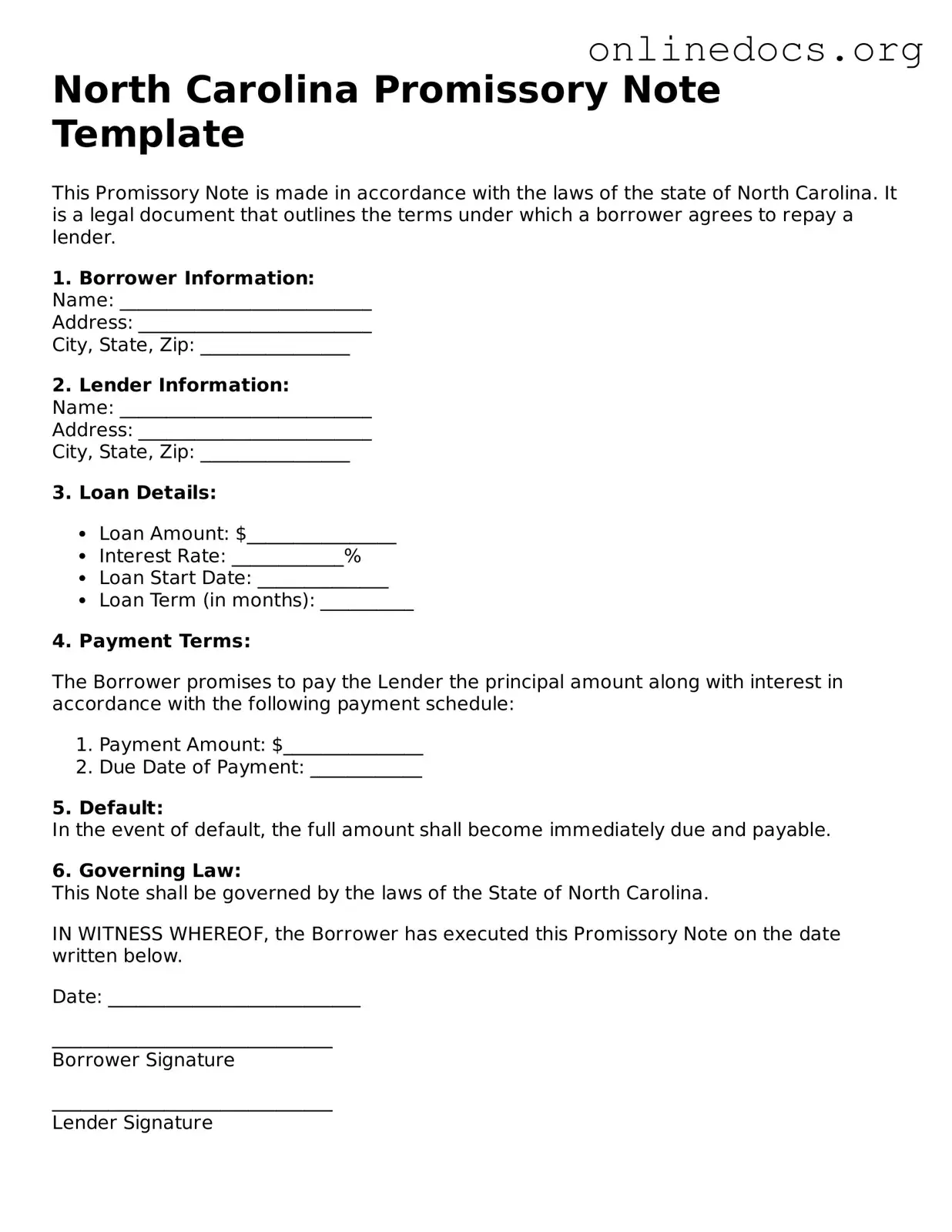A promissory note is a financial document that outlines a borrower's promise to repay a loan under specific terms. Similar to the North Carolina Promissory Note, a personal loan agreement serves the same fundamental purpose. This document details the amount borrowed, the interest rate, repayment schedule, and consequences for default. While a promissory note is often more straightforward, a personal loan agreement can include additional terms, such as collateral requirements or co-signers, providing more comprehensive protection for the lender.
A mortgage agreement is another document closely related to a promissory note. In this case, the borrower secures a loan with real estate as collateral. The mortgage agreement outlines the loan amount, interest rate, and repayment terms, similar to a promissory note. However, it also includes specific provisions related to the property, such as the lender's rights in the event of default. This added layer of complexity makes mortgage agreements essential for real estate transactions.
A business loan agreement shares similarities with a promissory note, particularly in its purpose of outlining the terms of a loan. It specifies the loan amount, interest rate, and repayment schedule, just like a promissory note. However, business loan agreements often include additional clauses related to the business's financial performance and may require personal guarantees from business owners. This makes them more tailored to the needs of commercial borrowers.
A car loan agreement is another document that parallels the North Carolina Promissory Note. This type of agreement details the terms under which a borrower finances the purchase of a vehicle. It includes the loan amount, interest rate, and repayment terms, similar to a promissory note. However, car loan agreements also typically specify the vehicle as collateral, allowing the lender to repossess the car if the borrower defaults on payments.
A lease agreement, while primarily used for rental properties, shares some common features with a promissory note. Both documents outline payment terms and conditions. A lease agreement specifies the rent amount, payment schedule, and duration of the lease, akin to the repayment terms found in a promissory note. However, leases also cover other aspects, such as maintenance responsibilities and rules for property use, making them more comprehensive in nature.
When considering various kinds of financial agreements, it is essential to understand the nuances between documents such as loan agreements, secured notes, and personal guarantees. Each serves its unique purpose in clarifying the responsibilities of both parties involved. To delve deeper into specific agreements like the California Lease Agreement form, you can find a useful resource at legalformspdf.com, which outlines the terms and conditions necessary for protecting both landlords and tenants in California.
Lastly, a student loan agreement resembles a promissory note in that it outlines the borrower's obligation to repay the funds used for education. This document specifies the loan amount, interest rate, and repayment terms, similar to a traditional promissory note. However, student loan agreements often include unique provisions related to deferment, forbearance, and potential forgiveness options, reflecting the specific nature of educational financing.
